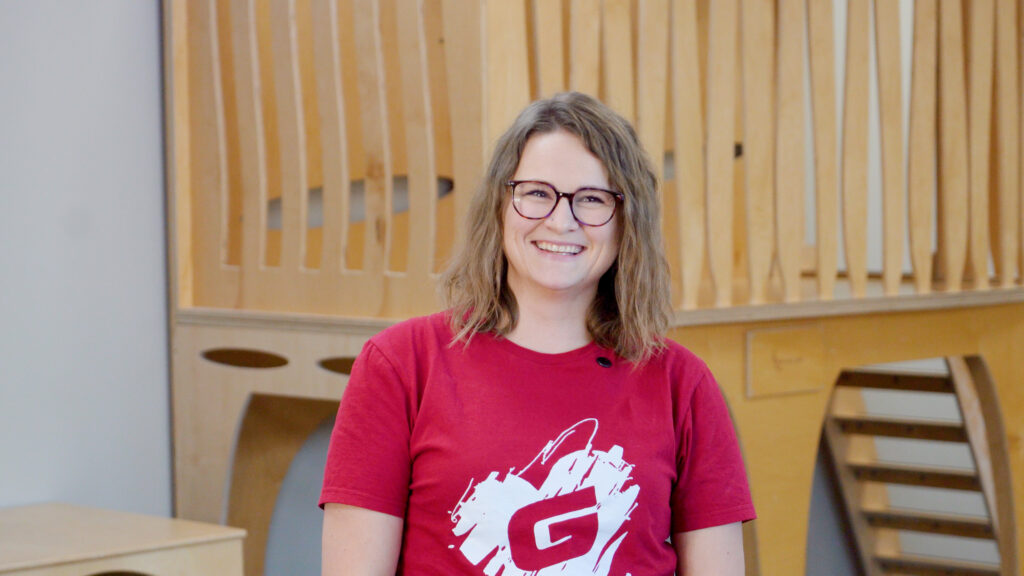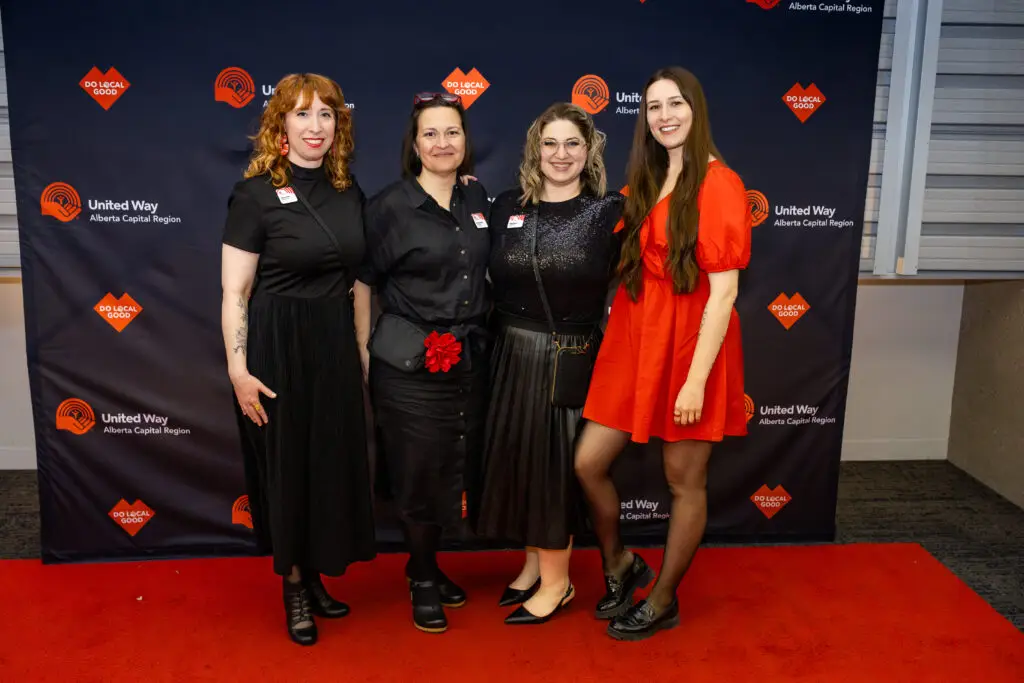August 13, 2025

When a new mother struggles, the effects ripple across her entire family. When moms struggle, families feel it and when moms are supported, communities grow stronger. That’s why United Way of the Alberta Capital Region invests in local agencies that understand what mothers need to thrive.
From teen parents navigating high school alongside parenthood, to rural moms overcoming isolation community agencies like Terra Centre and Fort Saskatchewan Families First Society are bridging the gap between formal mental health systems and the real-world challenges mothers face.
Each of these agencies delivers wraparound, relationship-based supports that meet mothers where they’re at: emotionally, physically, and even geographically. Together, they’re proving that when we prioritize maternal mental health, the entire community benefits.

Engineering Day of Caring volunteer Veronica shares how her experience at Fort Saskatchewan Families First Society inspired her to give back through United Way.
For Veronica Barton, maternal mental health is a lived experience. A mother of three in Fort Saskatchewan, she credits Families First Society with identifying her postpartum depression after the birth of her first child.
“As a first-time mom, I didn’t have a reference and thought how I was feeling was just what it was like to be a mom,” she reflects, noting that staff gently but firmly encouraged her to check out a support group to help her develop coping skills and meet other parents who were experiencing postpartum mental health challenges.
“I’ll never forget walking in with my two-week-old baby, looking through the window and seeing all these moms with their babies,” Veronica says. “It still chokes me up. That was the first moment I thought ‘maybe I’m going to be okay’.”
Families First Society supports caregivers across Fort Saskatchewan and the Sturgeon Region. Through home visits, group programs, and early childhood development services, staff work closely with families to deliver personalized assistance. On-site mental health services contribute to a comprehensive support network, while tailored resources for expectant parents help prepare them for their baby’s arrival. Connecting parents within the local region allows them to create an extended support network to lean on.
“I had family support,” Barton reflects. “But sometimes, you need that external help. Families First gave me that—and I’ll never stop being grateful.”
That’s why she was eager to give back years later as a volunteer for the Engineering Day of Caring. That day, she saw just how many people were invested in helping mothers like her.
“There were people everywhere: outside, inside, all over the place…it was just massive. And to see how much was actually happening here was, was really, really cool,” she recalls.

A Terra Centre participant shares a fun moment with their child. Supplied by Terra Centre.
For teen parents, mental health stakes are even higher as they navigate parenthood while still growing up themselves. That’s why Terra Centre offers a place for teen parents to complete their high school education while also accessing other resources they need to be successful, like housing support, in-school childcare, basic needs, and mental health services.
Dr. Chandra Ashton, Clinical Manager of Mental Health & Wellness at Terra Centre, emphasizes the importance of understanding a young parent’s reality.
“Some of our participants are minors who can’t legally sign for their own phones, therapy, housing, or income support. Some are parenting in blended families or are living with their own parents. It’s a complex reality. So, our service delivery model aims to remove those systemic barriers and walk beside them to empower them to be the parents they want to be.”
That’s why Terra Centre’s in-house mental health services are barrier-free, cost-free, and embedded within all their youth parenting programs. Thanks to the support of funders like United Way, Terra Centre can employ highly trained therapists to help young parents meet their unique mental health needs. They also offer access to a Child and Adolescent Psychiatrist with addiction and perinatal expertise, something exceedingly rare in Canada.
Being a young parent can also mean dealing with a lot of stigma and judgement. Chandra emphasizes that we all have a role to play in building a kinder community for young parents as they navigate the challenges of parenthood.
“I also feel like as a community, the biggest gift we can provide in terms of support is to first work through our biases and assumptions,” she shares.
“Our understanding of the problem impacts how we will solve it. Biased lenses create isolation and ‘othering’. Teen parent families thrive when we work together.”
What connects these three organizations is their shared belief that strong mothers build strong communities.
They recognize that maternal mental health can’t be addressed with one-size-fits-all approaches. It requires cultural safety, accessible support, and local knowledge. It takes listening without judgment, showing up consistently, and offering care without conditions.
These agencies are doing that work every day. But they can’t do it alone.
When we invest in mothers, we invest in every child, every family, and every future. Let’s keep showing up — for them, and with them.

Mental health affects us all — parents, children, neighbours, and coworkers. At United Way of the Alberta Capital Region, we fund community-based programs that make mental health support more accessible, inclusive, and responsive to real life.
Learn More
Learn how Empower U equips women with practical financial skills and community support to confidently build independence, security, and lasting financial freedom.

Moved by the strength of women in her life and community, Christie Hutchinson shares what led her to Women United and the movement to create a more equitable future for women and girls.